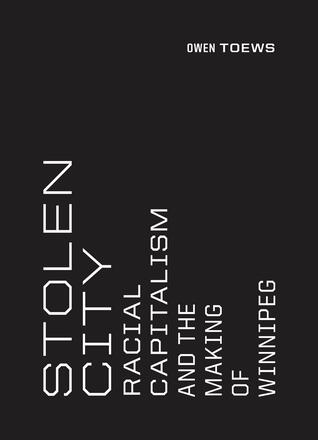
Stolen City
Racial Capitalism and the Making of Winnipeg
La description
Stolen City reveals how settler colonialism, as a mode of racial capitalism, has made and remade Winnipeg over the past 150 years, tracing the emergence of a ruling alliance that has installed successive development visions to guarantee its hold on regional wealth and power. Drawing on a rich local tradition of grassroots counter-planning, Stolen City uncovers the persistence of revolutionary visions for the city and the concrete ways that oppression is shaped by resistance.
Reviews
A sweeping and magnificent spatial history of a city founded in the midst of imperial economic crisis--a crisis resolved through western expansion. Toews intricately weaves theories of racial capitalism into Indian policy from the nineteenth century to contemporary urban development in Winnipeg. This book is a must read for anyone trying to understand the ways that colonization produces spaces that are shaped and then reshaped by hierarchies of difference, rooted in a never-ending struggle to turn Indigenous land into property. -Shiri Pasternal, author of Grounded Authority: The Algonquins of Barriere Lake Against the StateToews moves from the violent Canadian expansion of the mi-nineteenth-century to the hockey arenas, glass condos and incarceration of the 2000s, tracing how different moments in Winnipeg's history reframed the dispossession of Indigenous people and land. Stolen City is carefully grounded and analytically trenchant, while keeping faith in the possibility of a Winnipeg that is something more than stolen. - Adele Perry, author of On the Edge of Empire: Gender, Race, and the Making of British Columbia, 1849-1871Stolen City is creative, theoretically innovative, and skillfully crafted from an exceptional range of historical and ethnographic data woven into a convincing analysis. The insights that Toews offers are significant for those who are working on these issues across the globe. - Setha Low, author of Behind The Gates: Life, Security, and the Pursuit of Happiness in Fortress AmericaStolen City is a riveting account of pan-Indigenous resistence to settler colonial land claims, idustries, and (sub)urban development projects. Toews contributes to an exciting. and timely conversation on the relationships between racial capitalism and settler colonialism that have relevance for struggles against gentrification and enclosures of land and for planning decolonial futures. - Jenna M. Loyd, author of Boats, Borders, and Bases: Race, The Cold War, and the Rise of Migration Detention in the United States